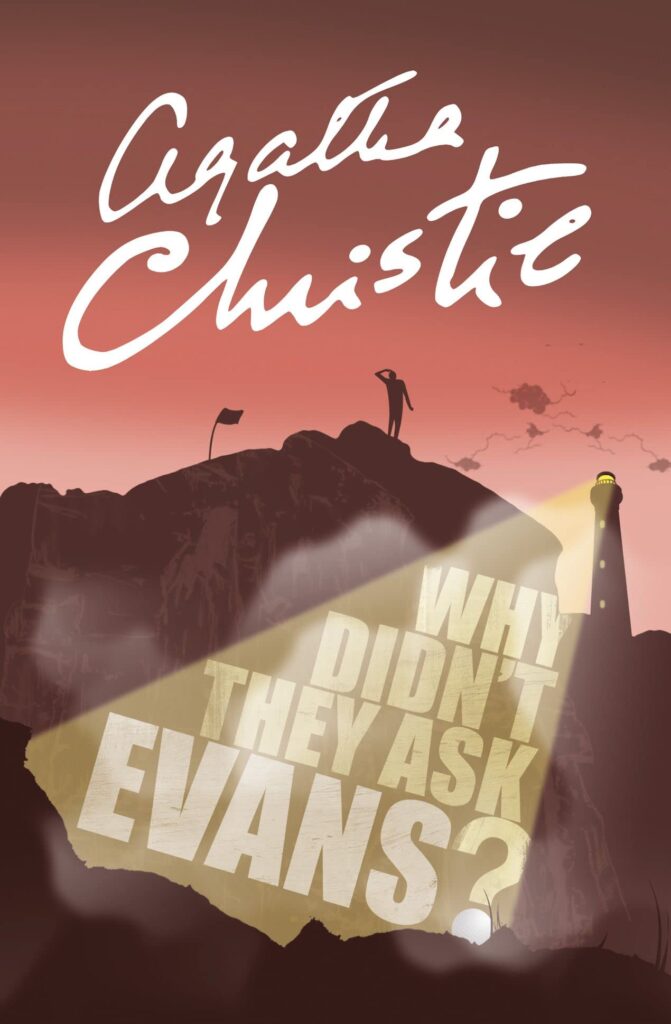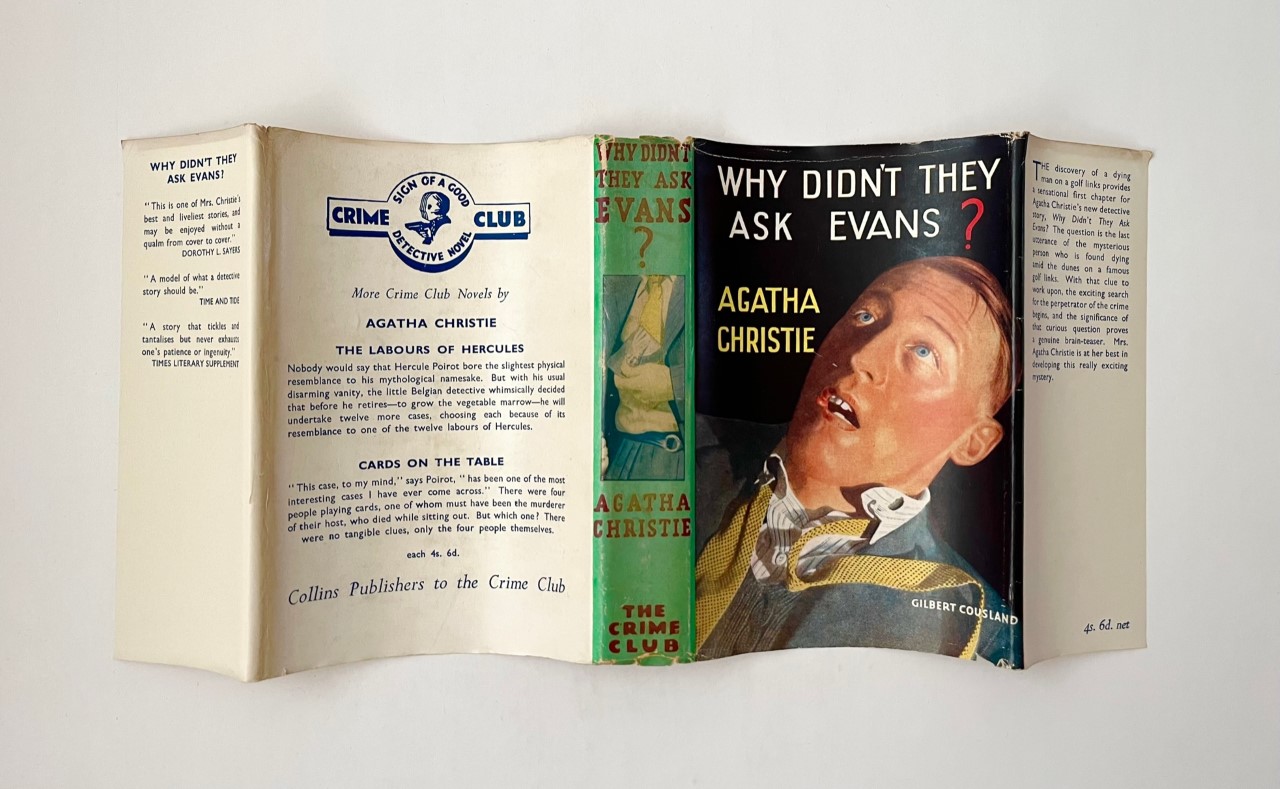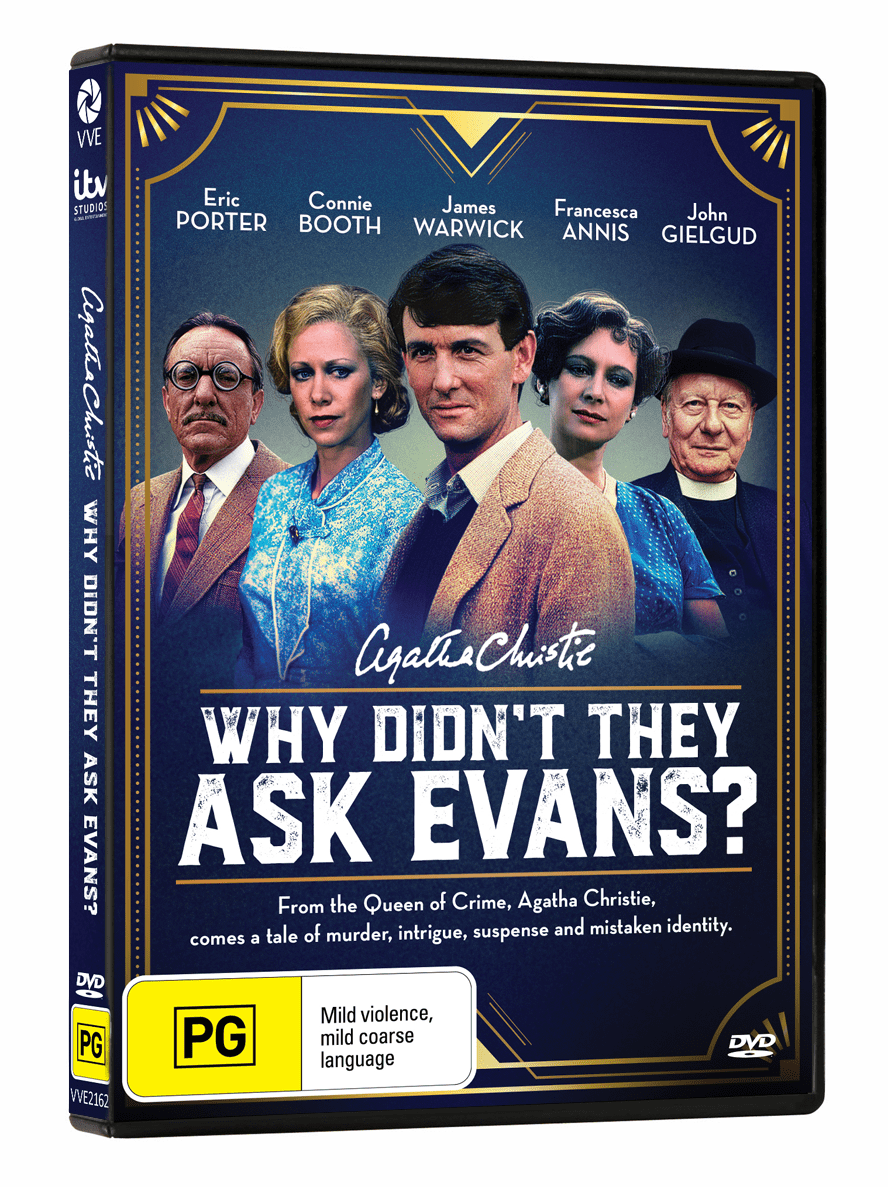Why Did not They Ask Evans?: Unpacking a Masterful Thriller’s Unanswered Questions
Associated Articles: Why Did not They Ask Evans?: Unpacking a Masterful Thriller’s Unanswered Questions
Introduction
With nice pleasure, we are going to discover the intriguing subject associated to Why Did not They Ask Evans?: Unpacking a Masterful Thriller’s Unanswered Questions. Let’s weave attention-grabbing data and provide contemporary views to the readers.
Desk of Content material
Why Did not They Ask Evans?: Unpacking a Masterful Thriller’s Unanswered Questions

Agatha Christie’s Why Did not They Ask Evans? is a deceptively easy but profoundly intricate thriller. Its plot, pushed by an opportunity discovery and a cryptic dying man’s phrases, unfolds with a fascinating mix of suspense, humor, and social commentary. Whereas the central thriller – the identification of the assassin and the motive behind the crime – is finally solved, the novel leaves a lingering sense of intrigue, prompting readers to contemplate the unstated and the unanswered. This text explores the assorted layers of “why they did not ask Evans,” delving into the novel’s thematic issues and the delicate clues that contribute to its enduring enchantment.
The fast query, after all, refers back to the enigmatic ultimate phrases of the dying man, "Why did not they ask Evans?" Bobby Jones, a younger man struck by a golf ball, utters these phrases earlier than expiring. This seemingly random phrase turns into the keystone of your complete investigation, prompting the inquisitive Bobby and his cousin, Frankie Derwent, to embark on a deadly journey to uncover the reality. The reply is not a easy one, neither is it instantly obvious. The phrase itself is a pink herring, intentionally designed to mislead and intrigue. It isn’t a direct clue to the identification of the assassin, however relatively a pointer in the direction of a vital piece of the puzzle – the existence of a hidden connection between seemingly disparate people.
One interpretation lies within the inherent carelessness and superficiality of the investigation initially undertaken. The police, initially dismissive of Bobby’s demise, fail to totally examine the circumstances, overlooking essential particulars and dismissing inconsistencies. They fail to “ask Evans” – not within the literal sense, however within the sense of correctly pursuing all strains of inquiry and interesting with the potential significance of seemingly irrelevant data. The preliminary investigation is characterised by an absence of thoroughness, a failure to attach the dots, and a reliance on assumptions relatively than proof. This highlights a key theme in Christie’s work: the fallibility of human notion and the risks of complacency within the face of crime.
The novel subtly criticizes the category system prevalent in Nineteen Thirties England. The preliminary investigation is hampered by the social biases of the police and different people concerned. The upper-class characters, typically insulated from the realities of crime, exhibit a level of informal indifference that hinders the pursuit of justice. Their reluctance to delve deeply into the matter, their dismissal of sure people primarily based on social standing, and their ingrained prejudices contribute to the preliminary failure to ask the best questions – to ask Evans, in essence. The identify "Evans" itself turns into symbolic of the missed and underestimated, representing these whose contributions are dismissed resulting from their social standing.
Moreover, the phrase may very well be interpreted as a mirrored image of the broader societal negligence that allowed the crimes to happen within the first place. The narrative exposes an online of deceit and manipulation, the place people are complicit in concealing the reality, both by way of energetic participation or by way of passive inaction. The failure to ask Evans represents a collective failure of society to deal with the underlying points that facilitated the felony acts. The people concerned within the conspiracy are shielded by their social standing and connections, highlighting the systemic inequalities that permit such crimes to go undetected and unpunished for therefore lengthy.
The identification of "Evans" – Dr. Nicholson – provides one other layer of complexity. He isn’t immediately concerned within the homicide however holds a vital piece of the puzzle. His testimony, if sought out correctly, might have considerably superior the investigation from the outset. His information of the occasions resulting in the crime, and his connection to the central gamers, makes his omission from the preliminary inquiry a obvious oversight. The failure to ask him highlights the restrictions of the preliminary investigation and the results of overlooking seemingly minor particulars.
Past the fast narrative, the phrase "Why did not they ask Evans?" capabilities as a meta-commentary on the character of detective fiction itself. Christie, a grasp of the style, makes use of this phrase to problem the reader to interact actively with the narrative, to query the assumptions made by the characters and to contemplate the broader implications of the case. The novel encourages crucial considering and commentary, rewarding those that pay shut consideration to the delicate particulars and inconsistencies woven all through the plot.
The seemingly easy query turns into an emblem of the complexity of human interplay and the elusive nature of fact. The characters, each investigators and suspects, are flawed and pushed by their very own motivations, biases, and perceptions. The failure to ask Evans, subsequently, displays not only a failure of the police investigation however a failure of human understanding, a failure to see past the floor and to understand the interconnectedness of occasions.
The novel’s ending, whereas offering a decision to the central thriller, does not totally resolve the paradox surrounding the phrase. The query lingers, serving as a reminder of the potential for misinterpretations, the restrictions of human notion, and the enduring energy of secrets and techniques. The answer to the crime is satisfying, however the lingering query concerning the preliminary failure to analyze totally continues to resonate, prompting additional reflection on the themes of social class, particular person accountability, and the intricacies of human relationships.
In conclusion, "Why did not they ask Evans?" just isn’t a easy query with a simple reply. It is a multifaceted enigma that serves as a catalyst for the narrative, an emblem of the failings within the preliminary investigation, a mirrored image of societal inequalities, and a meta-commentary on the character of detective fiction itself. The phrase’s ambiguity, removed from being a weak spot, is a power, enriching the narrative and prompting readers to interact actively with the textual content, to contemplate the unstated, and to grapple with the complexities of human nature and the pursuit of justice. The novel’s enduring enchantment lies exactly on this ambiguity, its capacity to stimulate thought and dialogue lengthy after the ultimate web page is turned. The query stays, not as a puzzle to be solved, however as a provocation to contemplate the multifaceted the reason why, in life as in fiction, essential questions typically stay unasked, and important items of knowledge missed.








Closure
Thus, we hope this text has offered precious insights into Why Did not They Ask Evans?: Unpacking a Masterful Thriller’s Unanswered Questions. We hope you discover this text informative and helpful. See you in our subsequent article!